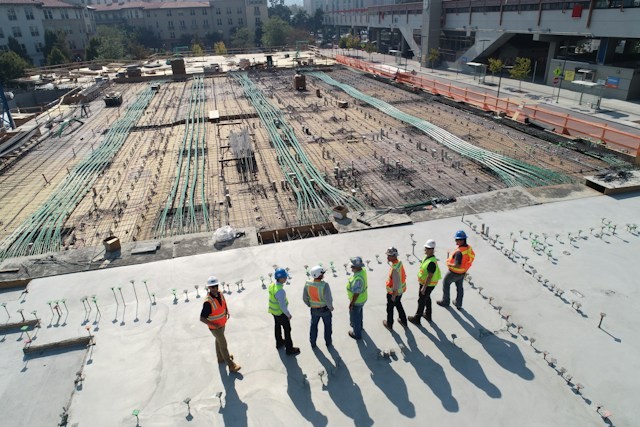
Up to 900 foreign workers are expected to assist NextStar Energy Inc. in building its heavily subsidized battery plant in Windsor, Ontario. The temporary workers worldwide will be among the approximately 1,600 technicians that the company's external suppliers, jointly owned by Stellantis and LG Corp. of South Korea, will employ to assemble, install, and test specialized equipment.
Logistical Consideration
The estimates were released a week after Windsor police revealed on social media that up to 1,600 South Koreans would be arriving to assist with plant construction. This led to concerns from politicians and labor unions regarding the plant's potential to create many jobs in the area.
"So you'll have a few people, very few people, selected people, who need to come to transfer technology because this is a new industry."
He claimed that during his conversation with the CEOs of NextStar and Stellantis on Monday, he was comforted by their pledges to hire Canadians.
Following Windsor police's announcement that they were assisting in the preparations for a potential 1,600 workers from South Korea to come and help build the plant, which is anticipated to require upwards of $15 billion in public support, labor groups, and politicians expressed concern in recent days.
Chief Executive Danies Lee of NextStar confirmed on Monday that the company continues to engage up to 2,300 local and regional tradespeople to help build the plant and hire roughly 2,500 Canadians to run it. According to him, the company would still require hiring extra temporary employees with "proprietary knowledge and specialized expertise" to assist with the building and opening of the factory.
However, NextStar did not estimate the number of new hires, a point that Ontario's Ministers of Labor, David Piccini, and Economic Development, Vic Fedeli, pressed the federal government on Tuesday. They demanded information in a letter to their federal counterparts about the number of foreign workers already on the ground constructing the plant and the number coming under federal programs.
READ ALSO: Jobless Claims Fall, Not Expected During Week Of April 9
Initiative In Question
"Taxpayers and workers deserve to know that every job related to this project that can be filled by a Canadian worker is filled by a Canadian worker and that no Canadian worker is displaced," they said in the letter.
However, only one employee has been authorized under the temporary foreign worker program thus far, according to Federal Employment Minister Randy Boissonnault, who made this announcement to reporters on Tuesday. The program determines whether Canadians can fill the position before authorizing a foreign hire. He also said that the estimate floating around seemed excessive.
"There is no justification that we can see for the number that the South Korean ambassador raised with 1,600 people."
At the same event, Immigration Minister Mark Miller mentioned that companies can bring workers in on work visas, or visa-free, to perform specific tasks because Canada and South Korea have a free trade agreement.
According to Miller, less than 100 foreign workers have arrived and are here to help set up the plant. This is different from temporary foreign workers. Miller assured that the arrival of these workers won't affect the Canadian jobs promised. Greig Mordue from McMaster University explains people move in and out due to the free trade agreement with South Korea; bringing in experts to launch a new plant is a common practice. These experts help install and fine-tune equipment, ensuring efficient processes. While the number (1,600) might seem high, the company is motivated to get the plant sprinting because funding incentives decrease after 2030.
Mordue noted that companies like Volkswagen and Northvolt may also bring in workers for their plants, but fewer foreign workers will be needed as local expertise grows. Champagne said that the federal government expects NextStar to prioritize Canadian workers, but it is also essential to consider the long-term success of the battery manufacturing industry. There will be a transfer of knowledge, ensuring success for decades.
RELATED ARTICLE: US Weekly Unemployment Claims Increases to 231,000, Adding to Economic Concerns
© 2017 Jobs & Hire All rights reserved. Do not reproduce without permission.




